Hearthstone Veterinary Hospital wants you and your pet to enjoy traditional July Fourth activities together. Families have more free time to celebrate during the summer, but summer brings risks for pets. Noisy fireworks, backyard cookouts, vacation travel, and water recreation all endanger pets. Join us as we indulge in the socratic method with our Q&A test on July Fourth pet safety.
#1: True or false? Dogs naturally hate loud noises, but they recover quickly, with no adverse effects.
Answer: False.
Few pet owners respond “true” to this poll question, since pet noise phobia is a common—yet underdiagnosed—condition. Noise aversion in pets is a disease syndrome similar to severe anxiety and panic attacks in people. Loud noises, such as firecrackers and thunder, trigger pets to lick their lips, shake, or cling to their owners, and may include circling, pacing, and panicking to the point of destroying furniture and injuring themselves in more severe cases.
If your pet displays noise aversion signs, they need veterinary care. Our Hearthstone Veterinary Hospital team will first examine your pet to ensure they have no underlying medical condition. Once we confirm that their problem is noise aversion, we will create a plan that likely will include behavior modification, such as distracting, redirecting, desensitization, and counterconditioning, as well as complementary or natural therapies, such as ThunderShirts, pheromones, t-touch techniques, massage, acupuncture, and calming supplements. Anti-anxiety medications, such as trazodone, Sileo, or clomipramine, can also help some pets.
#2: True or false? Dogs and cats can eat rich human food (e.g., barbecued pork) on special occasions, such as holiday cook-outs, so long as they don’t eat them every day.
Answer: False
The widely held idea that pets can safely indulge in rich foods on special occasions is a myth. In reality, a sudden change in food—however brief—can cause serious problems in pets. Cookout foods, especially those high in fat, may cause vomiting, diarrhea, and pancreatitis in pets. Our veterinary team can usually successfully treat gastroenteritis caused by a dietary indiscretion, but pancreatitis is a serious condition with a guarded prognosis, and often requires that your pet be referred to a veterinary specialty or emergency center. In addition, inflammation of the pancreas can have long-term complications, such as diabetes, and can be life-threatening. A steady, high quality pet food diet is best for pets, who don’t need special foods to enjoy the summer holiday. Their best treat is spending time with you—not toxic chocolate smores.
#3: Multiple choice: Which of the following is true about heat stress in dogs?
- All pet breeds are equally susceptible.
- Wearing a harness instead of a collar decreases pet risk.
- If fresh water is always available, pets will not overheat.
- Heat stress is not a concern for dogs since they sweat through their paw pads.
Answer: B
Unfortunately, many pet owners believe the other three statements are correct, but:
- Different pet breeds mean different risks—brachycephalic breeds (i.e., flat-faced, short-nosed breeds), and dark-colored and highly active pets are at higher risk of heat stress, as well as those with thick or heavy hair coats.
- They may have access to cool, fresh drinking water, but pets in the hot sun still can become overheated.
- Dogs sweat only through their paw pads, and can require additional cooling in extreme heat.
- A pet harness does not restrict breathing as much as a collar, which helps dogs stay cool.
Keep your pet from overheating to avoid progression to heat stroke, which is often fatal.
#4: Choose the correct word: When traveling in the summer, allowing dogs to hang their heads out the car window to cool off is OK/is not OK.
Answer: Is not OK
Any part of a pet’s body outside a moving vehicle is dangerous, and definitely not OK, because of the high injury risk. Your dog may enjoy the wind in their face, but they should always be restrained with a seat belt attached to their harness or carrier. Pets loose in the car also can distract the driver and cause an accident, or be hurt if the car stops suddenly or is involved in an accident.
#5: True or false? Dogs are natural swimmers—after all, they invented the dog paddle—so they don’t need special attention around the water.
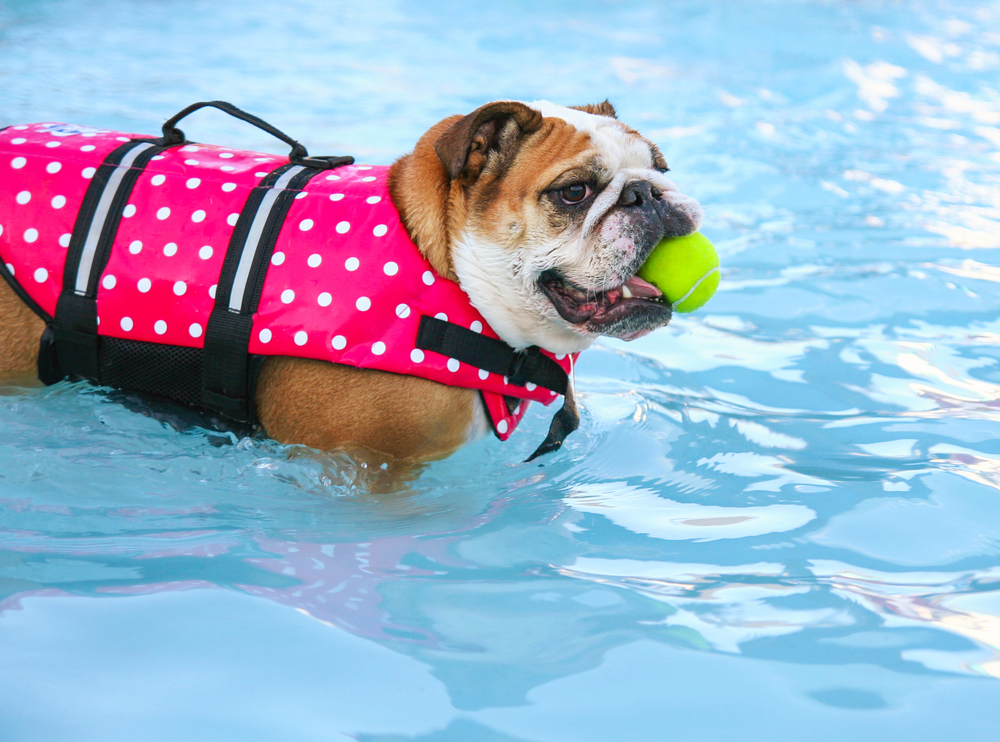
Answer: False
Dog paddle simply describes how this swim stroke looks. Not all dogs are natural swimmers, and usually they require a gradual introduction to the water, rather than a sink-or-swim approach. Let your dog explore shallow water at first, so you can assess their compatibility with the water. A neon orange pet life jacket provides buoyancy, and will allow you to easily spot your pet in or near the water.
School may be out and final exams may be over, but Hearthstone Veterinary Hospital hopes you scored well on our summer pet safety test. Make an appointment with our caring team if you have any questions or concerns, and enjoy a safe summer with your family and friends—and especially your pet.



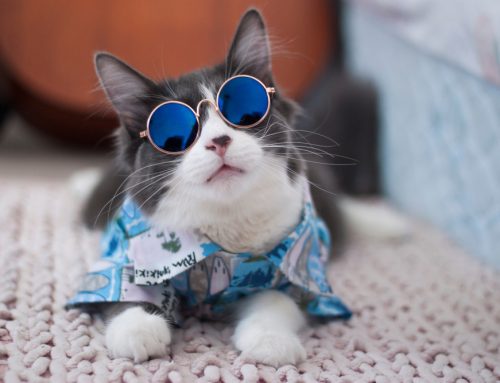
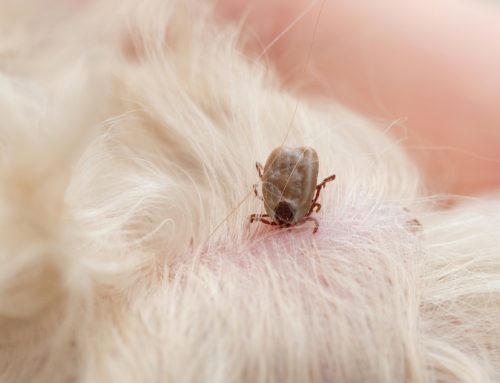
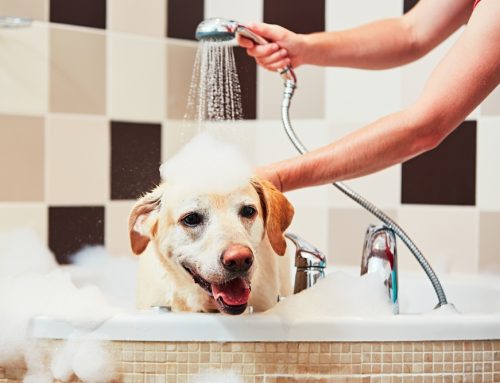
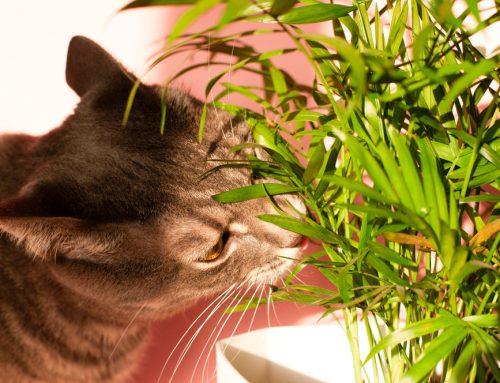
Leave A Comment